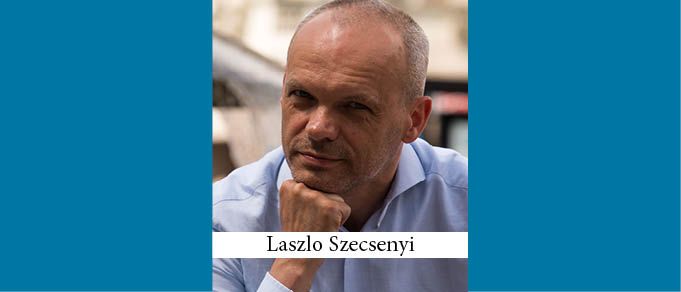In the summer of 2000 I was working for the University of Vienna, spending my time on academic research and fighting with topics like the (lack of) enforcement of judicial awards in Austria and Hungary. My one-day seminar at the University of Economics (FOWI) brought me several interesting contacts, including some young lawyers from the classy law firm CHS, that resulted in an offer to develop a new partner firm for CHS in Budapest.
It wasn’t simply the challenge of diving into the hot and competitive life of international law firms in Budapest that was interesting but – for me as a country boy – the life in Budapest. I had to learn very quickly that knowledge of the law and the ability to solve legal problems alone are not enough to attain prosperity; human management, financing, acquisition, and marketing became the prominent words in my daily life.
The differences between the legal markets in Budapest and Vienna became evident very early on. The Hungarian market was dominated by big international players, while the Austrian bar protected its home market very effectively, meaning that the top places in the legal rankings were occupied by local (Austrian) firms. The other thing was the differences in transparency. Lawyer rankings, deal reporting, ads, newspapers, and online marketing service providers reported every important event or case in the Austrian market. The Budapest market, however, was quiet. Better to close all doors and keep a golden silence, to protect the profession from snooping eyes. Legal marketing was even prohibited. There was clearly a connection between the number of registered attorneys (there were more in Budapest alone than in all of Austria) and the profitability of the legal profession (hourly rates of EUR 300 in Austria vs. EUR 30 in Hungary).
This has all changed. New publications try to open a window on the daily work and life of attorneys. And a certain transparency in a segment of lawyers’ business has developed through deal reports. Still, it’s not enough. Indeed, one of the more significant attempts to impose transparency in the Hungarian system failed. In 2013 the Act on Attorneys was amended, and in 2015 law firms were required for the first time to publish their annual reports (based on 2014 figures). A couple of days before the expiry of the relevant deadline (May 31st, 2015), however, parliament quietly changed the rule and removed the publication obligation. By that time many firms had already published their financial data. Those that had not obeyed the rule must have known the future. Typically Hungarian, or as we say, “Hungaricum.” This is why there is no oversight on the financial success of Hungarian law firms. Good for the affected lawyers, bad for the market and transparency.
In this context, then can the public become informed about the strength and quality of legal services? As a result, I often see clients taking very different approaches in choosing legal advisors. For instance, recently we participated in a tender for legal services for the development of a new headquarters of a leading financial institution. The tender was managed by the institution’s procurement department, and participants were asked for fixed fee proposals for assistance in: 1) buying a property, building a new structure, and covering all necessary legal services; 2) buying nothing but entering into a lease; or 3) buying an old building and managing a refurbishment project. The scope was indefinite, and the price of the requested legal services was required to be fixed, as it is with buying any goods on the market. Oh my God! What effective and working client attorney relationship can be built that way? Or to choose perhaps a more striking analogy: who has ever seen somebody with heart disease waiting for the operation and choosing their doctor by tender where only the price is the determining factor?
If you look around you will realize that money alone rules the marketing market. If you pay, you will be mentioned. For example, I receive emails every day from self-made market researchers informing me that I am the best on the Hungarian market and the “Real Estate Lawyer of the Year” title is now within reach. I only need to buy their specific package and will find myself in heaven. There is an entire business that has been developed based on the vanity of our profession.
Of course, there are exceptions. Several of the most well-known international law firm ranking services for example, undertake genuine market research and listen to the recommendations of other lawyers who have had good experiences with their competitors. Still, they are exceptions.
Something has gone wrong. And this is why we need fair and independent market analysis, valuations coming from clients and, even better, from colleagues sitting on the other side of the table, more transparency, and value-based rankings. And this should be achievable even though we still live in a society that has not radically changed from the one described by Zsigmond Moricz in the novel Relatives (Rokonok).
By Laszlo Szecsenyi, Managing Partner, Szecsenyi & Partners
This Article was originally published in Issue 5.5 of the CEE Legal Matters Magazine. If you would like to receive a hard copy of the magazine, you can subscribe here.




